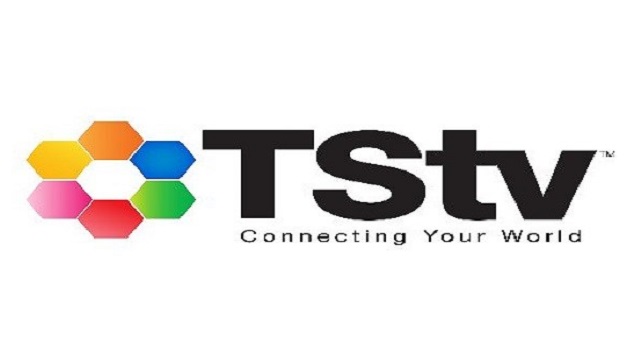Broadcasting
N5m Hate Speech Fine: Court to Deliver Judgment on Suit against FG Today

A Federal High Court in Lagos State presided by Justice A.L Allagoa will today deliver judgment in a fundamental rights suit filed by Inibehe Effiong, human rights lawyer, against the National Broadcasting Commission (NBC), Abubakar Malami, attorney-general of the Federation, and Alhaji Lai Mohammed, minister of Information, on the imposition on N5million fine on broadcast stations over alleged hate speech.

The judgment which is expected to be a watershed on media freedom and free speech in Nigeria was previously slated for October 8, 2021 but had to be adjourned because the judge was on official assignment outside Lagos.
Effiong had in 2020 sued the NBC, Mohammed and Malami for arbitrarily amending the Broadcast Code and hiking the fine for hate speech from N500,000 to N5m.
The lawyer challenged the N5m fine on Nigeria Info 99.3FM Lagos and the threat by NBC to punish other broadcast stations in the country over alleged hate speech.
His followed the fine imposed on Nigeria Info by NBC for granting an interview to Dr. Obadiah Mailafia, late former deputy governor of the Central Bank of Nigeria (CBN), who claimed that an unidentified northern governor was a Boko Haram commander.
The NBC had threatened that any TV or radio station that allows elected officials to be insulted on its platform would be fined N5m or shut down.
The NBC board had also alleged that Mohammed hijacked the responsibility of the NBC and unilaterally hiked the fine for hate speech without consultation.
Effiong had in his supporting affidavit told the court that the actions of the NBC, the Minister of Information and the Nigerian government had gravely affected his freedom of expression and that of broadcast stations, broadcasters and other Nigerian citizens who also appear as guests on radio and television stations to express critical views about the government and public officeholders.
The lawyer argued that “abusing” or “insulting” the government cannot be criminalised in a democracy.
He contended that the expression “hate speech” is not defined under any written law and cannot be invoked or penalized based on the capricious expectations of the Respondents.
He said that to do otherwise “will amount to setting fire to the constitution” and that “those who are paid with taxpayers’ money cannot be insulated or shielded from insults and abuse by those who pay them (the citizens).”
The activist reminded the court that “Nigeria has passed the era of colonialism and military dictatorship”. He said that Lai Mohammed, NBC and the Federal Government were “seeking to subvert Nigeria’s constitutional democracy with the attendant liberties and foist a civilian dictatorship on the country.”
The lawyer, therefore, prayed the court to make “a declaration that broadcast stations in Nigeria, broadcasters, guests and callers during radio and television programmes are entitled to a fair trial before a court of competent jurisdiction as guaranteed by Section 36 of the Constitution of the Federal Republic of Nigeria, 1999 (as amended) and Article 7 of the African Charter on Human and Peoples’ Rights (Ratification and Enforcement) Act, Cap. A9 L.F.N. 2004 before a sentence of fine or other penalties can be imposed on them over comments, views or opinions expressed on radio and television.”
He further prayed the court to make an order of perpetual injunction restraining the NBC, the Minister of Information and the Federal Government from imposing fines or other penalties on broadcast stations in Nigeria for comments or opinions expressed by citizens during radio or television programmes.
Broadcasting
Nigeria Week Ahead: Inflation, Oil and Naira in focus

By Lukman Otunuga, Senior Market Analyst at FXTM.
A flurry of high-risk events may pump global financial markets with fresh volatility this week.

Top-tier data, including US Inflation, the unofficial start of earnings season, and US Congress “Crypto Week,” among other themes, could spell fresh opportunities.
Amidst this, uncertainty over global trade will add to the mix after President Donald Trump threatened 35% tariffs on the EU and Mexico over the weekend.
Regarding US inflation, this may impact bets around Fed cuts in the second half of this year. Markets are forecasting CPI to rise 2.6% from 2.4% in the prior month, with core CPI rising to 2.9% from 2.8%. Signs of rising prices may shave bets around the Fed cutting interest rates – boosting the dollar as a result.
Closer to home, Nigeria’s June CPI data due July 15 is expected to show signs of cooling inflationary pressures. This could offer some relief to the Central Bank of Nigeria (CBN) which aggressively hiked interest rates throughout 2024. Inflation is expected to have eased to 21.4% year-on-year from 23% in May – marking the 4th consecutive month of decline. However, the slowdown is largely a technical adjustment aided by the recent gains in the Naira amid higher non-oil exports and a weaker dollar.
The CBN is scheduled to meet later this month and will most likely keep rates unchanged at 27.5%.
One key challenge for the country will be how to re-tweak its budget for lower oil prices. Indeed, the budget was based around oil production at 2 million barrels and oil prices of $75. Brent is trading around $70 with the nation producing 1.544m b/d of crude in May according to OPEC. Nigeria is hoping to raise production to 1.9m b/d by the end of 2025. But its impact on the economy may be muted if oversupply and tepid demand keep oil prices subdued. Brent is up 4% this month but still down over 6% since the start of 2025.
Broadcasting
EFCC Re-Arraigns Echefu, TStv CEO for Allegedly Defrauding Ex-Minister of N1Bn, $1.3m

Bright Echefu, chief executive officer, Telecom Satellites Limited (TStv), and three co‑defendants appeared before the Federal High Court in Abuja yesterday on an amended twelve‑count indictment brought by the Economic and Financial Crimes Commission (EFCC). The charges allege money laundering, tax evasion, and investment fraud involving approximately ₦1 billion and $1.3 million.

Bright Echefu, chief executive officer, TStv
In addition to Echefu, the defendants are TStv Executive Director, Felix Igboanuga, Telecom Satellites Limited itself, and Briechberg Investment Ltd.
According to the April 5, 2025, amended charge sheet the EFCC accuses the quartet of defrauding Mr. Tanimu Turaki, Managing Director of Kalsiyam Global and former Minister of Special Duties, alongside BYI General Limited, out of a combined investment of ₦1 billion and $1.3 million. The commission has also included a ₦66 million alleged tax default.
The revised indictment lists:
Count 2: ₦33,909,542.47 in unremitted Company Income Tax
Count 3: ₦13,519,382.00 in unremitted VAT
Count 4: ₦19,488,860.00 in unremitted PAYE
Counts 5–12: Various fraud‑related transactions, including ₦380 million from Kalsiyam Farm, ₦400 million from BYI General Ltd and $1.35 million in loans secured under false pretences.
All defendants pleaded not guilty once again. At the hearing before Justice Mohammed Umar, Echefu’s lead counsel, Senior Advocate Eyitayo Fatogun, informed the court of ongoing settlement discussions with the complainants.
“There are moves to settle this matter and there was a meeting on Saturday between myself and the Nominal Complainant as it is about investment,” Fatogun stated.
“The Defendants have paid some money and I was thinking that the matter be adjourned for report of settlement.”
EFCC counsel A.S. Tomwell confirmed receipt of those payments but emphasized the necessity of entering a plea before considering any adjournment. The court thus ordered the formal reading of the charges and adjourned the trial to October 15, 2025.
Broadcasting
More Woes for MultiChoice as Ghana Orders 30% Price Cut

The government of Ghana has ordered MultiChoice Ghana to reduce DSTV subscription costs by 30%, noting the significant appreciation of local currency and growing dissatisfaction with current rates.

This comes as Nigeria Data Protection Commission (NDPC) has fined MultiChoice Nigeria ₦766,242,500 for breaching the Nigeria Data Protection Act (NDPA).
According to Mr Babatunde Bamigboye, head Legal, Enforcement & Regulations, NDPC, the investigation, which commenced in the second quarter of 2024, was triggered by suspected breach of privacy rights of Multichoice subscribers and illegal cross-border transfer of personal data of Nigerians.
MultiChoice, which operates across Africa, continues to lose revenue and subscribers.
Ghana’s minister of communication, digital technology, and innovation, Samuel Nartey George, made the call last week during a meeting with a DSTV team led by Dr. Keabetswe Modimoeng, group executive for regulatory and corporate affairs.
According to a ministry statement, George said the government’s responsibility is to respond to Ghanaians’ concerns over high DSTV pricing and outdated content offers.
The Minister pointed out that despite a 30% increase in the cedi’s value over the past five months; DSTV prices have not reflected the positive economic trend.
The statement went on to say the minister is therefore calling for a 30% price reduction to match the cedi’s appreciation and to pass on economic benefits to consumers.
According to the statement, while MultiChoice has implemented promotional packages, people prefer a direct price reduction over temporary discounts.
George said feedback from public engagements revealed that many users are dissatisfied with DSTV’s content, describing it as outdated save for Premier League football. They also believe that the current cost is not justified.
”To address the concerns, he said MultiChoice Ghana has until July 21 to formally respond to the government’s request. The Minister expects a concrete proposal by this date, allowing time for further engagement before the end of July,” the statement said.
In response, Dr. Modimoeng acknowledged the government’s concerns and expressed gratitude for the opportunity to dialogue.
The MultiChoice team reacted positively to the minister’s request and committed to provide input by July 21st. They emphasised the need of balancing public interest and business sustainability.
This is the continent’s latest pricing conundrum for the pan-African pay-TV business, following fee disputes with Nigerian and Malawian authorities.
In Ghana, the demand for price cuts comes as MultiChoice is under pressure, having lost revenue and subscribers in the financial year that ended March 31, 2025. Last month, the company announced its financial year-end results.
In a statement to shareholders last month on the Stock Exchange News Service, the company said the past two financial years have been a period of significant financial disruption for economies, corporates and consumers across Sub-Saharan Africa due to challenging macro-economic factors.
Combined with the impact of structural industry changes in video entertainment, such as the rise of piracy, streaming services and social media, this has materially affected the overall performance of the MultiChoice Group, it noted.
Over this period, MultiChoice said the group lost 2.8 million active linear subscribers and had to absorb a R10.2 billion negative impact on its top line due to local currency depreciation against the US dollar.
For the year, the company reveals that linear subscribers were down 1.2 million, or 8% year-on-year, to 14.5 million active subscribers, with the loss evenly split between South African (600 000) and rest of Africa (600 000).

 Telecom2 days ago
Telecom2 days agoNCC Speaks of Plans to Secure Telecom Infrastructure Nationwide

 General News2 days ago
General News2 days agoAirtel Nigeria Drives BFSI and Utility Sector Innovation with Industry-wide Workshop

 Telecom2 days ago
Telecom2 days agoAfrica’s Lawmakers Commit to Strengthening AI, Digital Health and Smart Manufacturing Frameworks

 E-Financial2 days ago
E-Financial2 days agoUBA Expands to More African Cities, Stamps Footprint in Saudi Arabia

 General News2 days ago
General News2 days agoEFCC Says Corrupt Politicians are Using Crypto Wallets to Launder Money

 E-Financial2 days ago
E-Financial2 days agoEcobank Plans to Raise $250m Capital Through Private Placement

 News2 days ago
News2 days agoIHS Nigeria, UNICEF Donate Oxygen Plant to Bridge Health Gap in River State

 Telecom2 days ago
Telecom2 days agoNITDA DG: AI Is an Ally for Innovation, Not an Enemy






















